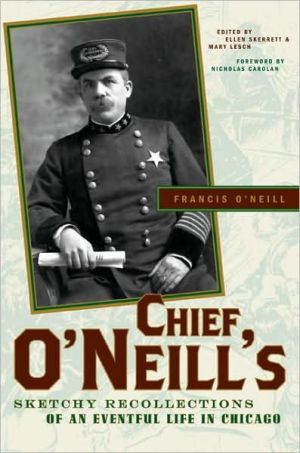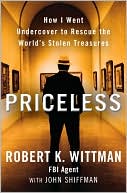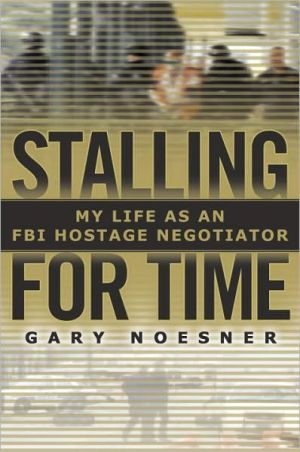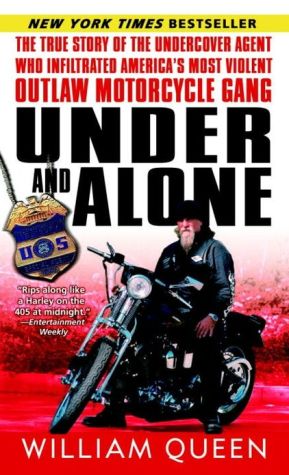Chief O'Neill's Sketchy Recollections of an Eventful Life in Chicago
This remarkable memoir of immigration and assimilation provides a rare view of urban life in Chicago in the late 1800s by a newcomer to the city and the Midwest, and the nation as well. Francis O’Neill left Ireland in 1865. After five years traveling the world as a sailor, he and his family settled in Chicago just shortly before the Great Fire of 1871. \ As O’Neill looked back on his life, writing in Chicago at the age of...
Search in google:
This remarkable memoir of immigration and assimilation provides a rare view of urban life in Chicago in the late 1800s by a newcomer to the city and the Midwest, and the nation as well. Francis O’Neill left Ireland in 1865. After five years traveling the world as a sailor, he and his family settled in Chicago just shortly before the Great Fire of 1871. As O’Neill looked back on his life, writing in Chicago at the age of 83, he could give first-hand accounts of Pullman strike of 1894, the railway strike of 1903, and the packinghouse strike of 1904. He could also reflect on the corruption that kept him, in spite of his innovations, extremely high exam scores, and performance, subject to powerful aldermen who prevented his advance as a member of the Chicago Police Department. Despite these obstacles, O’Neill eventually rose to be chief of police—a position from which he could enact much-needed civil service reform. In addition to his professional success, O’Neill is also remembered and beloved for his hobby, preserving traditional Irish music. O’Neill’s story offers perspective on the inner workings of the police department at the turn of the twentieth century. His memoir also brings to life the challenges involved in succeeding in a new land, providing for his family, and integrating into a new culture. Francis O’Neill serves as a fine documentarian of the Irish immigrant experience in Chicago.
Chief O'Neill's SKETCHY RECOLLECTIONS OF AN EVENTFUL LIFE IN CHICAGO\ \ \ By FRANCIS O'NEILL \ NORTHWESTERN UNIVERSITY PRESS \ Copyright © 2008 \ Northwestern University Press\ All right reserved.\ \ ISBN: 978-0-8101-2465-3 \ \ \ \ \ Chapter One EARLY YEARS 1848-1866 \ An octogenarian who has led an adventurous life on sea and land, and circumnavigated the globe before attaining his majority, may be privileged to review the leading episodes and events of a checkered career. When the days of our prime are past and the currents of emotion have subsided, old age finds some compensation in the pleasures of memory. This sketchy narrative, written reluctantly at the urgent solicitation of old-time friends, makes no claim to merit but faithful adherence to facts.\ My birth on August 28, 1848, a famine year, could hardly have been a joyous event in the already large family of my parents, John O'Neill and Catherine O'Mahony (Klenach). Our townland, Tralibane, was three miles southeast of Bantry, an historic seaport town in West Cork. I had learned to read long before being able to walk that distance and made rapid progress at the Bantry National School, notably in mathematics, in spite of incidental difficulties at home. Tallow candles and dogwood splinters were the only illuminants in farmhouses in those days, kerosene lamps being then unknown. Neighbors came in nightly to learn the news from the Crimean War. After reading the newspapers for the benefit of all, my father interpreted the story to those who spoke only the Irish language. Crowded out from the candles, I contrived to study my tasks, or lessons, by the fitful light of the turf fire on the hearth.\ At the age of twelve I was appointed junior monitor and two years later was advanced to senior monitor. In both cases those ages were reported as fourteen and sixteen, respectively, to the Commissioners of Education at Dublin. Not yet sixteen, I sat in with aspirants for promotion from various school districts and passed an examination for teacher successfully.\ Drawing and sketching engrossed every available moment of those years. One day the parish priest, Canon Sheehan, came upon me unexpectedly as I was sketching the new convent which crowned a picturesque mound overlooking the town of and bay of Bantry. His proposition to send me to the School of Design in Cork met with no favor at home. Crops and cattle, not art, were their perennial problem. Of this I had practical experience in the tillage fields in summer when others of my class were enjoying their vacations.\ Debarred by my youth from any prospect of obtaining a position as schoolteacher for several years, and with no other outlet in view for goading ambition, I decided to challenge the Fates in a wider field of human endeavor.\ In formulating a plausible excuse for leaving home, I was encouraged in the belief that I could obtain a position as teacher in the school ships, Hawk and Hastings, of the English Navy, anchored in Queenstown Harbor. With one pound of my own salary in my pocket, I bravely set out on top of the mail coach, bound for the city of Cork, one morning early in the month of April 1865, Queenstown, or Cobh, being my destination.\ The gold-braided naval officer to whom I presented my application and credentials courteously informed me that the infrequent appointment of teachers was not within his jurisdiction. Another shock awaited me when refused enlistment as a seaman, the maximum age in times of peace being sixteen years, and I was several months past that.\ Depressed but not defeated, a faint hope led my lagging footsteps to the Butter Market in the city of Cork, to which our farm firkins were consigned. The trip was fruitless and a waste of time.\ ALMOST A CHRISTIAN BROTHER\ Disappointed in obtaining expected employment and penniless, I called on Bishop Delaney at his residence at Blackrock, five miles from the city on the picturesque banks of the river Lee. After looking over my credentials, the kindly prelate offered me a position as teacher with the Christian Brothers, at whose school I was to meet him later that day. This was by no means the future I had hoped for, yet under the circumstances it was acceptable, so I walked back to the city and inquired my way to the North Monastery. When I arrived there, weary and footsore, imagine my dismay when informed that His Grace had been there but had gone again. And so I missed the vocation of a Christian Brother by fifteen minutes, owing to the distance I had to walk.\ With all my cherished designs frustrated, there came the determination to get away from Ireland, anywhere, by any means, and as soon as possible.\ After cheerless weeks of diligent effort, friendless and penniless, Captain Watson of an English vessel-the barque Anne-agreed to take me with him to Sunderland, England, but according to the admiralty laws, no one could be carried free. I should pay a fare, or he should pay me for service. As I had no money, the humane captain paid me-three shillings-when we arrived at his destination.\ ARRIVED IN ENGLAND\ Locating a cheap lodging house in Narrow Flag Lane, patronized by peddlers, ballad singers, and other human drift, I resumed my daily rounds among the shipping. Waiting for a chance at the stove (in common use for all), to roast a herring to season a bun for such times as I could eat, relieved the monotony at the lodging house.\ The last penny of scanty three shillings being gone, I was obliged to sell, for sixpence, my cherished flute, and later, one by one, my precious books, in order to live, before I succeeded in shipping as an apprentice seaman on the brig Jane Duncan bound for Alexandria, Egypt.\ From the deck of the ship the shorelines of Portugal and Spain, the Rock of Gibraltar, and other scenes on the Mediterranean are fascinating, especially when seen for the first time by a novice in travel. Weary migrating birds avail themselves of the opportunity for resting on passing ships occasionally, and no doubt many such migrants, encountering storms or losing their sense of direction in flying to or from the African coast, drop into the sea from exhaustion.\ ALEXANDRIA, EGYPT\ At the time of which I write (1865- 66) there were no piers or docks at Alexandria, so that the process of loading or unloading a cargo was slow and primitive. Coal had to be hoisted out of the holds of vessels in tubs and dumped into a chute leading to a scow moored alongside.\ Every morning I sculled ashore for a gang of so-called Arab laborers who filled the coal tubs for the ship's crew to "jump out" and return them to shore each evening. Those laborers were all faithful Mohammedans, regardless of their complexions, which ranged from light brown to jet-black Nubians.\ Probably observing a religious fast, they accepted such food as was given to them but never ate a bite until after sundown ashore.\ Even a soldier on sentry not far from our anchorage laid down his gun at intervals and, facing in the direction of Mecca, prostrated himself a number of times before seizing his gun and resuming his duties.\ Invariably chosen to scull the captain ashore and either wait for his return at the landing or accompany him on various missions, I had an opportunity to see much of Oriental life in this truly cosmopolitan city.\ A visit to the ancient Necropolis west of the city, then and for some years before being excavated, presented a serious subject for philosophic contemplation. It appears that passageways, seven or eight feet wide and ten feet deep, had been cut out of the solid sandstone rock. On either side, two tiers of receptacles, or pigeonholes, large enough for a coffin or human body, had been chiseled out of the rock. Ages of irresistible drifting sand from the Libyan Desert gradually overwhelmed this ancient burial place. In the nineteenth century it was commercialized. Sand, gravel, fragments of pottery, human bones, skulls, and even jaws with teeth still in their sockets were loaded and conveyed to ships in the harbor for ballast in their voyage to some other port for a cargo.\ HARBOR OF ODESSA IN THE BLACK SEA\ When the Jane Duncan reached the anchorage opposite Odessa, Russia's principal port in the Black Sea, her two hundred tons of ballast, including scattered fragments of human remains, were hoisted out of the hold and dumped overboard. What Egyptian mother, nursing and fondling her babes and crooning them to sleep, could have imagined that a thousand or more years later their bones would find a final resting place at the bottom of the Black Sea?\ Before leaving Egypt, it may be well to relate that when accompanying Captain Andersen to a ship chandler store at Alexandria, I solved an accounting problem in dispute between the captain and ship chandler. This so impressed the latter that he wanted to employ me, but the nature of my contract with the ship would not permit of my leaving and becoming an Egyptian-in the land of the pharaohs.\ THE ARCHIPELAGO AND DARDANELLES\ The scenery in sailing through the Archipelago to the Dardanelles, and thence through the Sea of Marmara to Constantinople on the voyage to Odessa, was delightful and impressive. On not a few of the rocky islets of the Archipelago, among which the ship's course had to be cautiously threaded, ruined temples to forgotten gods were occasionally glimpsed, and the desire to land and explore them was ever present, and even hoped for.\ So strong is the outward current through the strait of the Dardanelles-the only outlet to the immense accumulation of waters pouring into the Black Sea from the great rivers of southern Russia and eastern Europe-that sailing vessels require the aid of powerful tugboats to pass beyond its influence.\ In passing the city of Constantinople either way to the Black Sea or return, all ships are required to stop and report to the authorities for clearance papers. In all four stops, I rowed the captain ashore and awaited his return at the landing, all of which added to my experience with and among Orientals.\ Forbidding and cheerless is the Black Sea, or Euxine of the ancients, as compared with other waters. Not an island in its great expanse of 175,000 square miles to break the monotony.\ NUDE BATHING AT ODESSA\ Odessa occupies an elevated plateau of southern frontage with wide terraced stairways leading to the strand. A pier projects a few hundred feet out from shore, where boats from ships anchored out in deep water may land their occupants.\ The return cargo of the Jane Duncan was linseed or flaxseed, a decidedly slippery freight in rough sailing. Being liable to shift when a ship lists to one side, linseed must fill the hold to the deck, and with a view to leave no space for shifting, Russian women, as well as men, with hand scoops are employed to fill every space possible, as they crouch on their sides close under the deck to do so.\ At the dinner hour both sexes enjoy their coarse fare together, after which the men undress, climb onto the ship's rail, and plunging head foremost into the sea, swim about for a little while. Absolutely unabashed, the men climb back to the deck and put on their dusty clothes without disconcerting the other sex in the least. And this happened every day until the vessel was loaded.\ In keeping with this unconcern in regard to nudity was the indiscriminate bathing of men and women of all ages and sizes, which I witnessed one Sunday forenoon while awaiting the captain's visit ashore. Young men and women paired, and entirely nude, swam away and disported themselves as they saw fit, and altogether they seemed unconscious of sex. There was one exception, however: an aged woman who led a child into shallow water held one open hand to shade her abdomen.\ The return voyage to England was uneventful. After lying at anchor in Falmouth Harbor awaiting orders, the Jane Duncan sailed for Hull, the chief shipping port of Yorkshire, to which the cargo was consigned. There being no further use for their services, the entire crew was paid off, excepting the first mate, Mr. West, and myself.\ NEARLY KILLED\ Captain Andersen's wife came down from Sunderland to meet him, and as the distance between the two ports was but a day's sail, a tugboat was chartered to tow the brig to her home port. Now here's where I came near to ending my life.\ As the vessel-high out of the water without cargo or ballast-was being towed into the river, with the captain at the wheel talking to his wife, he either misconstrued or misunderstood the pilot's order, and the vessel headed for the stone wharf. Realizing that a collision was imminent, I seized a cork fender and jumping to the bow handed it to the mate. Before I could jump backward she struck, crushed in her timbers, and hurled me to the wharf. When I regained consciousness, I was in the marine hospital, labeled "compound fracture of the cranium," the scars of which are quite distinct on my forehead to this day.\ SECOND VOYAGE\ When the brig was ready to sail again, I was given the choice of going with her or remaining at Sunderland until the next voyage. Venturing to go, on the assurance that I would not be required to do any work until fully recovered, I soon found out that the ship owner's promise meant nothing to the new crew.\ We had no sooner put out to sea than a heavy gale was run into, and while I contrived to keep from being pitched out of my bunk, only persuasion of one member of the watch saved me from being dragged out of it by one or two others who could not see why a boy should be permitted to occupy a dry bunk while other bunks were leaky. In the general turmoil inevitable in a storm at sea in a small ship, a sick boy with bandaged head is liable to be forgotten, and had it not been for the generosity of one young sailor who shared with me the remnant of a fruitcake his girlfriend had given him, I would have fared badly indeed.\ After a storm there comes calm, and so it came in this instance. Fine weather followed, and though not being robust enough for ordinary seaman's work, I was obliged to earn my living by standing at the wheel and steering the ship eight hours a day for a few weeks. A two-hour "trick at the wheel," which requires judgment and concentration, is all that is ordinarily expected of any man, as a seaman's time is divided into four-hour shifts day and night, except a dogwatch of two hours daily to alternate the reliefs. Fortunately I was a good helmsman, and skill in that capacity was brought into service later on other ships and under a different flag.\ KYUSTENDIL, BULGARIAN SEAPORT\ Our destination on this voyage was Kyustendil on the Black Sea again, Bulgaria's only seaport. Old Roman remains of ancient occupation lay scattered about on the high ground inland from the town. A gravity railway brought trainloads of Indian corn down to the wharf for shipment, a convenience which shortened our stay at that port.\ Sheepskin coats and sheepskin caps were almost universally worn by peasants and middle class. Only persons of wealth or prominence wore cloth coats with the red fez skullcap, or tarboosh, after the Turkish fashion.\ THE BOSPORUS\ The passage through the Bosporus which connects the Black Sea with the Sea of Marmara and is twenty miles long is no less interesting than the Dardanelles or Hellespont, but it is of an entirely different character. Rugged hills, some crowned with ruined castles, rise abruptly from both shores, while picturesque bays indent the hillsides. One of them, called Beikus, or Bighouse Bay on the Asiatic side, is a favorite anchorage for ships awaiting orders. At a favorable opportunity, I swam ashore just to be able to say truthfully that I was once on the continent of Asia.\ The mansions of the wealthy, hailing from various places, by no means few, may be seen on the wooded slopes of both sides of this torrential strait for its entire length.\ BOWLING GREEN ON THE CLYDE\ With a cargo of corn, the Jane Duncan reached Bowling Green, a small port on the river Clyde, not far from Glasgow, Scotland, in April 1866 and, according to custom, paid off the crew, except the first mate and two apprentices-the present writer and Fred, a Belgian, who spoke four languages besides a fair command of English.\ (Continues...)\ \ \ \ \ Excerpted from Chief O'Neill's SKETCHY RECOLLECTIONS OF AN EVENTFUL LIFE IN CHICAGO by FRANCIS O'NEILL\ Copyright © 2008 by Northwestern University Press. Excerpted by permission.\ All rights reserved. No part of this excerpt may be reproduced or reprinted without permission in writing from the publisher.\ Excerpts are provided by Dial-A-Book Inc. solely for the personal use of visitors to this web site.\ \
Contents A Note on the Text....................ixForeword: The Influence of Francis O'Neill on Irish Traditional Music....................xiiiAcknowledgments....................xvIntroduction....................xixEarly Years: 1848-1866....................3Sailing Under the American Flag: 1866-1869....................17Quit Sea Life After Four Years' Experience: 1869-1905....................37Inclined to Retire: 1905-1936....................155O'Neill's Home Life and Legacy....................175Francis O'Neill Time Line....................183Books Donated by Captain Francis O'Neill to the University of Notre Dame Library in 1931....................189Report of the General Superintendent of Police of the City of Chicago to the City Council for the Fiscal Year Ending December 31, 1903....................259Notes....................277Index....................295








